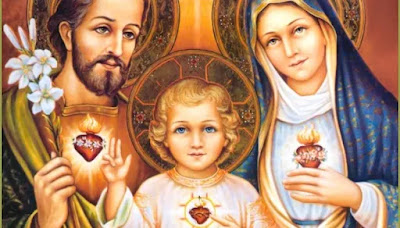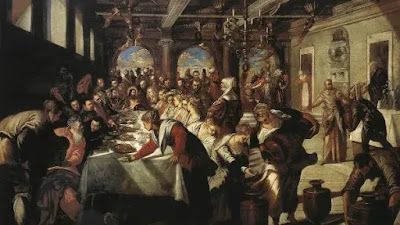First Reading (Isaiah 60:1-6)
A reading from the Book of the Prophet Isaiah.
Rise up in splendor, Jerusalem! Your light has come,
the glory of the Lord shines upon you.
See, darkness covers the earth,
and thick clouds cover the peoples;
but upon you the LORD shines,
and over you appears his glory.
Nations shall walk by your light,
and kings by your shining radiance.
Raise your eyes and look about;
they all gather and come to you:
your sons come from afar,
and your daughters in the arms of their nurses.
Then you shall be radiant at what you see,
your heart shall throb and overflow,
for the riches of the sea shall be emptied out before you,
the wealth of nations shall be brought to you.
Caravans of camels shall fill you,
dromedaries from Midian and Ephah;
all from Sheba shall come
bearing gold and frankincense,
and proclaiming the praises of the LORD.
Asking the big questions: Is there anything that stuck out to you from this reading? What darkness covers the earth and how does it impact all people? How does God reveal His glory on earth?
Second Reading (Ephesians 3:2-3A, 5-6)
A reading from the Letter of St. Paul to the Ephesians.
Asking the big questions: Is there anything that stuck out to you from this reading? How can our experience of faith help others?
Gospel (Matthew 2:1-12)
A reading from the Holy Gospel according to Matthew.
When Jesus was born in Bethlehem of Judea,
in the days of King Herod,
behold, magi from the east arrived in Jerusalem, saying,
"Where is the newborn king of the Jews?
We saw his star at its rising
and have come to do him homage."
When King Herod heard this,
he was greatly troubled,
and all Jerusalem with him.
Assembling all the chief priests and the scribes of the people,
He inquired of them where the Christ was to be born.
They said to him, "In Bethlehem of Judea,
for thus it has been written through the prophet:
And you, Bethlehem, land of Judah,
are by no means least among the rulers of Judah;
since from you shall come a ruler,
who is to shepherd my people Israel."
Then Herod called the magi secretly
and ascertained from them the time of the star's appearance.
He sent them to Bethlehem and said,
"Go and search diligently for the child.
When you have found him, bring me word,
that I too may go and do him homage."
After their audience with the king they set out.
And behold, the star that they had seen at its rising preceded them,
until it came and stopped over the place where the child was.
They were overjoyed at seeing the star,
and on entering the house
they saw the child with Mary his mother.
They prostrated themselves and did him homage.
Then they opened their treasures
and offered him gifts of gold, frankincense, and myrrh.
And having been warned in a dream not to return to Herod,
they departed for their country by another way.
Asking the big questions: Is there anything that stuck out to you from this Gospel reading? In what ways was Jesus a king? What does it mean to honor God with our lives? What do the gifts symbolize?





















